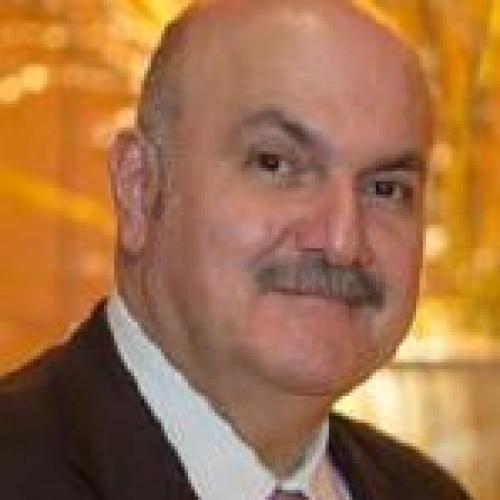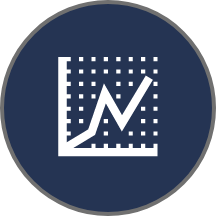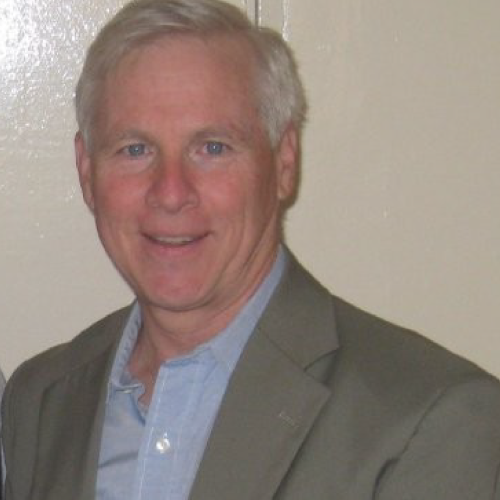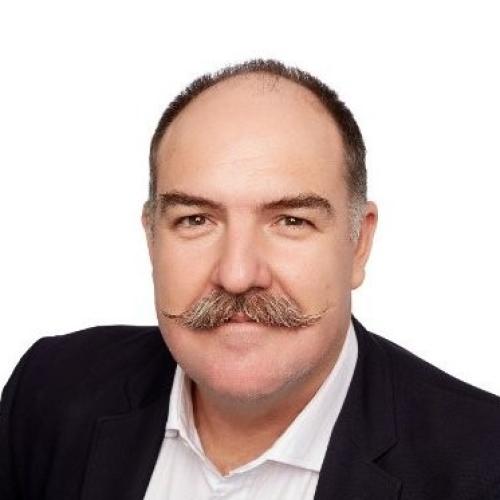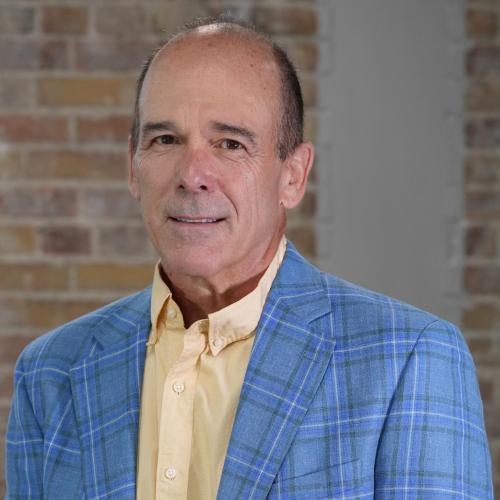Starting with any relevant education, walk me through the twists and turns of your career to date? How did one opportunity lead to the next + how did this lead you to where you are now?
I come from a family of engineers and always wanted to become an engineer. At 16 I came to Boston from Iran and ended up at BU for my bachelor and masters in electrical engineering. I went into the PhD program but decided I wanted to go and earn some money rather than continue in academia. I started in a capital equipment business building machines for automatic testing equipment, moved onto robotics and automation in automotive, then onto semiconductor capital equipment all over Asia. During this time, my role changed from an engineer to a salesman, to businessman, to inventor. Eventually, I ended up working at PerkinElmer as Head of engineering and R&D and Business Development all under the same hat. This is where my ‘health’ journey began.
The goal is to improve an animals’ quality of life and also help a producer’s bottom line.
After a stop at Kodak Molecular, I moved to Pfizer Animal Health (Zoetis) focusing on In-ovo vaccination machines. During this time, I got to know several people in the poultry industry. When I left Zoetis, I was contemplating different paths. Speaking with friends in poultry companies, certain unmet needs kept surfacing. I got a feeling there was a major opportunity for using the AI, high speed imaging and automation technologies used in other industries in animal health. I saw an opportunity to improve the health of the animals and provide vaccination at an individual level versus flock by flock. Our name, TARGAN derives from “targeting animals”. This is the idea that new technologies will allow us to manage animals and their health on an individual basis- where it was not possible before. The goal is to improve an animals’ quality of life and also help a producer’s bottom line.
So that's my background. Many people will see somebody like me as a head of sales or perhaps as an inventor. They don't know I’m an engineer, inventor, and a businessman.
What was the pivotal moment that put you on your current founder path?
As someone from outside animal health and experience in many industries that see high levels of precision automation, the concept of how to improve the provision of care to production animals always intrigued me. How could we use automation to vaccinate 73 billion chickens a year? From previous experience in other industries, I knew how effective involving clients from an early stage can be. I took this approach with TARGAN, getting poultry producers involved right upfront has been central to our success. Even though we had nothing to offer or show them, we simply started by talking about how the machine might work in their production line and started getting their feedback. They actually gave us a lot of guidance on how to design the system and what would make sense to them. It was imperative we find a way to integrate into the systems they already had in their hatcheries.
The fact that they let us be in their hatcheries when we were doing our prototype testing, allowed us to see a lot of their everyday operations. We knew their bottlenecks, and we could design around that. We learned so much because they showed us, and they shared with us.
From this feedback, the first challenge we were asked to solve was sex identification- or separating female and male day-old chicks. That initial discussion with one of our producers back in December, 2015, led me to sit down and think about how would I do that? Coming up with a patent and possible process began in 2016.By 2018, we had a prototype working, and then by 2023, we were able to make a commercial machine providing 98.8% sexing accuracy at a rate of one hundred thousand (100,000) chicks per hour.
We’ve had a handful of producers participating early on in the development of this product, and we learned that everybody talks to everybody. We thought we’d need an army of sales guys, but that hasn’t been the case, this technology has created incredible word of mouth and now after our first launch of the systems, we see that the customers are coming to us.
What stage are you at?
I started the company July 2015, and we have two systems that are either commercialized or will be within the next 12 months. I previously spoke about our feather sexing systems which was actually the second program we started. For our initial project, a vaccination system, we received our very first grant from the National Science Foundation (NSF) to make the first prototype, which we had ready in 2017. At that point, it became obvious that it's going to work, however that was a very simple proof of concept. Then we made a high throughput machine to provide the run rate we needed back in 2019/ 2020 timeframe. Prototype five got us to a point that we were able to test in a real hatchery, with real checks going at certain speeds and finding out what's happening. Late 2021, early 2022, we started the design of the final machine of the commercial platform, which is in the field and is being tested for commercialization in 2024. This system can vaccinate up to 100,000 chicks per hour and can be paired with our sexing system.
We expect to continue developing its capabilities as we learn more. At the same time we are doing this, we’re coming up with new tools in our toolbox, new ways of handling the animal and better ways of delivering the vaccine. All of that brings us to how we can apply this to different species, especially aqua and swine, utilizing the same technology. I am sure that once, let's say two years from today, we come back and have learned a few things in aqua or swine, we can go back and apply that to poultry again. So, the most important thing in this path as an entrepreneur and a technology developer, one should be very open-minded about the things you are going to learn and flexible about how to apply them back into your old philosophies.
Discuss the biggest challenges of getting to this point? How have you approached funding?
The major challenge is that there is still not a real definition of who we are in the norm of the industry. We are a company applying big machinery technology into animal health. When we went to the investor groups, they didn't know what to call us. We were not technology, we were not just capital equipment, we weren’t animal health, so they didn’t know how to invest in us. Originally, we started with a strategic partner, Merck Animal Health, who were joined by Oval Park Capital and Mountain Group Partners for our series A (and Series B) and then later on by NovaQuest for our 2022 series C. These four investors were very daring, they accepted the fact that they were going to invest in something they couldn’t put into a particular category.
The second challenge, of course, is always building a great team. During COVID we had about 18 months where people couldn't come together and we’re not working on software, we are building a machine. We have such a wonderful team that took our machines and subassembly prototypes and worked on them in their kitchens, living rooms and garages. They believe in the vision, they're not looking at it as a job. We are going to help feed the world. If you are able to save 15% of the cost of production that means you can grow 15% more food for the same cost, plus the reduction in CO2. As a result of the mission of the company, we have great retention.
They believe in the vision, they're not looking at it as a job.
At the end of the day, the most important part is to know who the early adopters will be in your customer base. Leaders who will listen to you and are open to this new application of technology and invest the time it takes to help you fail fast, learn and move forward. This was one of our really lucky breaks because we had five different customers who joined us early in the journey and stayed engaged throughout. They gave us chicks, they let us go into their hatcheries and set up our machines. They were patient time after time. They allowed us to fail, make adjustments, and go back again. We developed a relationship so that at a point, it became a norm for us being there and experimenting with them.
With the benefit of hindsight what would you have approached differently?
Building relationships with investors is a critical part of our roles as founders, making sure that your time spent is useful and effective is a big challenge. It was a learning experience for me to realize some of the ‘typical’ investors I was approaching were a huge waste of my time. If I was going to start another company today, I would look for the type of investor who can show at least 20% of their portfolio to be out of their comfort zone. You can talk with these investors because they have an openness in their mind and philosophy of investing.
Our segment is a very capital intensive proposition and now that we are at a commercial stage, we need tens of millions of dollars for the machines that will pay back over a period of years. How do you find a bank that actually has that kind of appetite? We've been talking to more than 25 banks and only three or four of the much smaller ones had more appetites for risk. The big banks all had the same questions, and the answers were the same. At the end of 15 minutes we realized “this team loved the story, but they aren’t going to put any money in at this point”. They didn’t understand the risks. So, then we went after agricultural banks, people who operate in this space and understand the philosophy of how things get done in the poultry and farming industry, so we didn't have to explain to them how the system will pay back. Now, of course, with our initial commercial success, we have big banks coming back and saying they are interested. We needed them last year, not this year.
What has been the greatest source of help/ guidance along the way?
One of the first investors I approached said ‘no’, but I asked him what I should do next. He told me to go and find a whole bunch of retired executives who have been in this industry for years and go and have lunch with them. They’ll usually give you an audience for about 10, 15 minutes and they may actually tell you what's wrong with your idea and give you some guidance. This is exactly what I did with a couple of executives in poultry production and animal health. These people ended up becoming my greatest advisors.
Being able to discuss the problem you’re trying to solve with people who have been in it and have thought about these challenges for years allows you to move much faster. Plus, these are the people that most likely hired the people that are now the leaders throughout the industry. The connections they’re able to open up to you are invaluable.
The connections they’re able to open up to you are invaluable.
Best advice you’d pass on to other founders?
Listening. Being open to what you are hearing even if you don’t immediately see its relevance and application. Quite often it becomes useful further down the road. Right now, we are exploring Aqua. My only experience I have with fish was the goldfish I had when I was about 10 years old. But we are learning, and we go to Norway and to Canada and we look, and we talk and we’re being very frank about the fact that we don't know enough and are very open to advice. Listening, especially when you don’t necessarily like what you’re hearing is essential.
My other piece of advice is just do it. Founders can get too caught up in defining what success is. If I could go back and talk to my thirty-year-old self, this is the main advice I would have given myself. If you believe that the product is going to be helpful and good for people or animals, then just go for it. Getting too caught up with trying to define the value of the business versus the value of the money you are trying to raise can become problematic. Much better to focus on finding the right investors, who have the same vision as you and are with you for the long term. Trying to figure out every step of the way upfront, I think it's just a waste of time because you just cannot predict the future.
Milestones cannot be ignored and are critical for investors, but don’t take your eyes off the top of the mountain, your final destination. The more you keep an eye on this, the likelier your journey to the top will be a straight line, without too many zigzags.
What do you think are broadly the biggest needs and opportunities in Animal Health?
On the production side, it feels like technology has been somewhat forced into production processes versus being planned for. I would say put together an association to look strategically at how technology can address current problems and predict what your future problems are going to be. The industry would benefit from a strategic plan from the top, and for the leading companies in the industry to collaborate and work together to produce this.
What’s going to have the single biggest impact on change in your area of the market?
I know how to make machines and less about biology, which is why we have a whole bunch of biological leaders and scientists here to help me. But I think there is a path to new technology development in the bio side of the business that, if you can align it with the existing delivery technologies, will have a huge impact. So, from my point of view, if this marriage between the technology on the delivery side and technology from the molecule development can happen, that would create an advantage for the industry.
What do the next 2 years have in store for you?
We have made a great start on our commercialization journey, and I’d expect the next 12 months to achieve greater penetration into the poultry marketplace. In 24 months, I certainly hope that we can talk about our success of prototype and proof of concept in swine and aqua segments.

